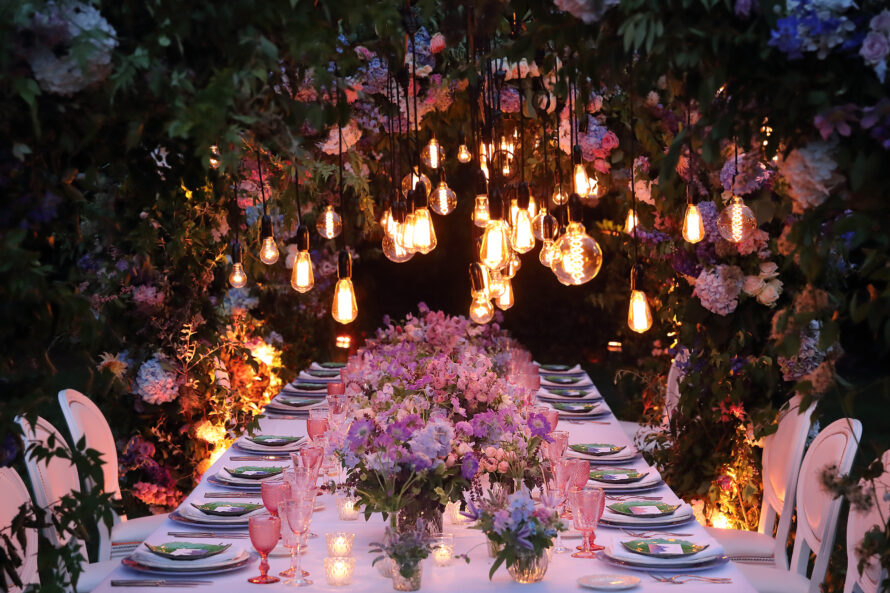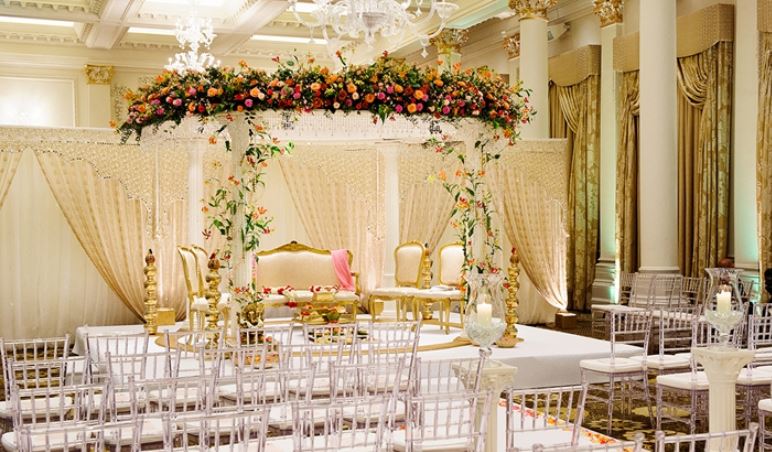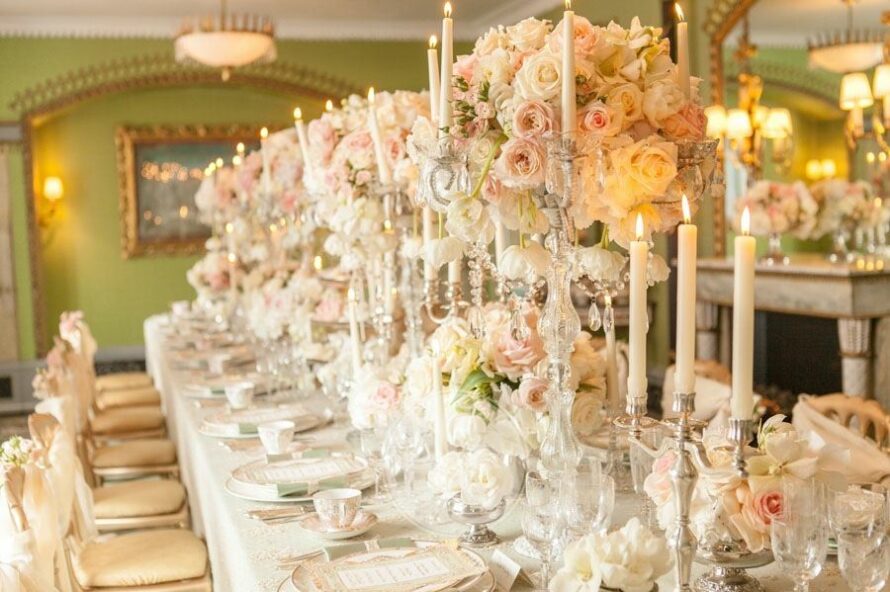While it’s traditional for the bride’s family to foot the bill for the majority of the wedding costs, times are changing and many couples choose to pay the bills themselves. They may also get help from the groom’s family or other relatives. Here are some elements of the wedding to think about when you’re dividing up the wedding costs.
Wedding costs – stationery and photographs
The bride’s family usually pays the photographer and the videographer, but if the bride and groom want anything additional that isn’t included in the standard package they should pay for those themselves. It is also customary for the bride’s family to pay for the invitations and thank you cards, place names, escort cards, and seating plans for the reception, as well as paying the postage on the invitations.
Wedding costs – wedding flowers
The bride’s family tends to pay for the flowers used to decorate the reception venue, including the table centrepieces. If you use the same flowers for the ceremony and reception, the bride’s family would be responsible for paying for them. The groom’s family is expected to pay for some of the wedding flowers, notably the bride’s and bridesmaids’ bouquets. They also cover the costs of the button holes for the male members of the wedding party as well as the ceremony flower arrangements if these are different to the ones used at the reception.
Wedding costs – accommodation and transportation
The groom or his family are expected to book and pay for the honeymoon and the wedding night accommodation. Traditionally the groom should also hire and pay for the wedding car.
Wedding costs – wedding outfits
The groom or his family are responsible for paying for his wedding outfit and those of any page boys. The bride or her family are expected to pay for the bridal gown together with beauty treatments, accessories, hair, and make- up. They also pay for flower girl’s outfits. Adult bridesmaids, the best man and the ushers most often pay for their own wedding outfits.
Wedding costs – wedding ceremony
The bride should buy the groom’s wedding ring and he should buy the bride’s. Traditionally the groom’s family would pay for the registrar and the marriage license while the bride’s family would cover the cost of the ceremony venue. However, some families are now sticking to the arrangement whereby the groom’s family pays for the entire ceremony, including the rehearsal, and the bride’s family pays for the reception.
Wedding costs – wedding reception
The wedding reception often includes hire of the venue, the catering, a certain amount of alcohol, the cake, and any wedding entertainment such as a band or DJ. This is usually paid for by the bride’s family and works out to be the most expensive part of the wedding.
Wedding costs – thank you gifts
The bride and groom are expected to pay for the wedding favours as these are gifts to their guests, thanking them for being part of their special day. They are also expected to buy thank you gifts for their maid of honour, best man and any other attendants, as well as for their parents. The bride should make sure she buys presents for her parents and for her bridesmaids, and the groom’s task is to purchase gifts for his parents and the male members of the bridal party.



